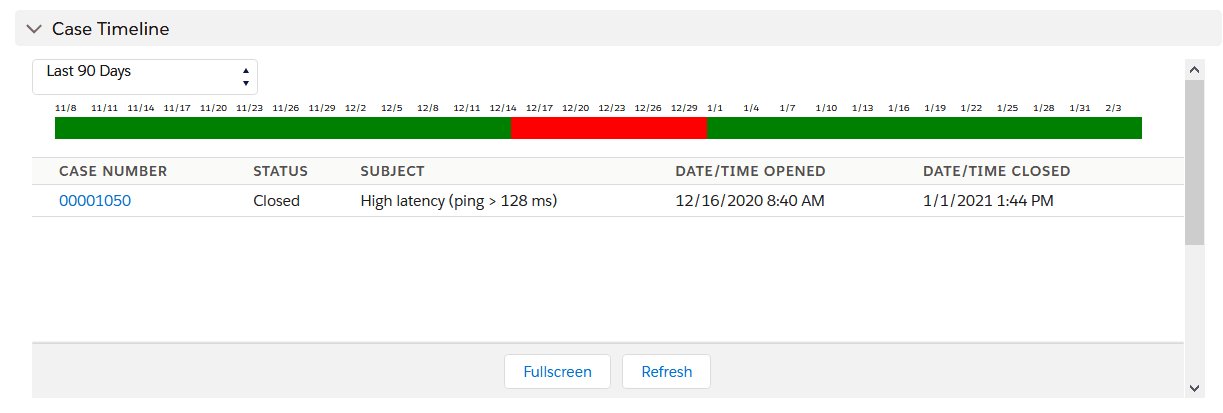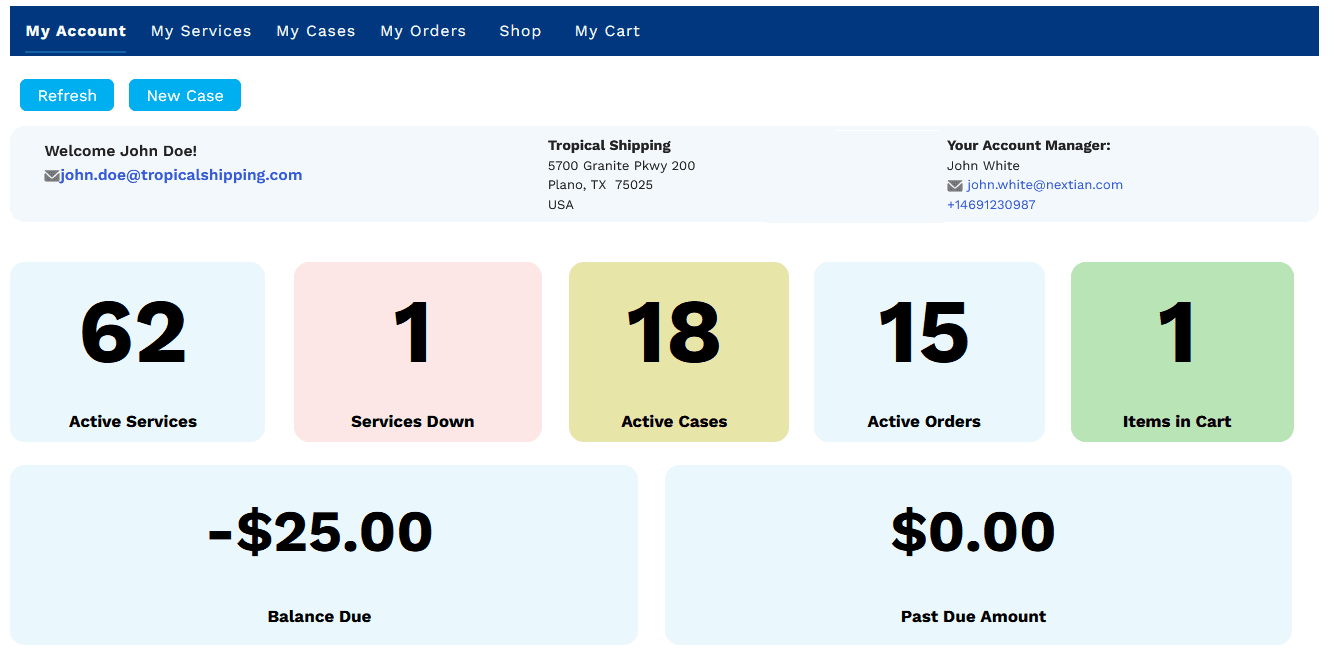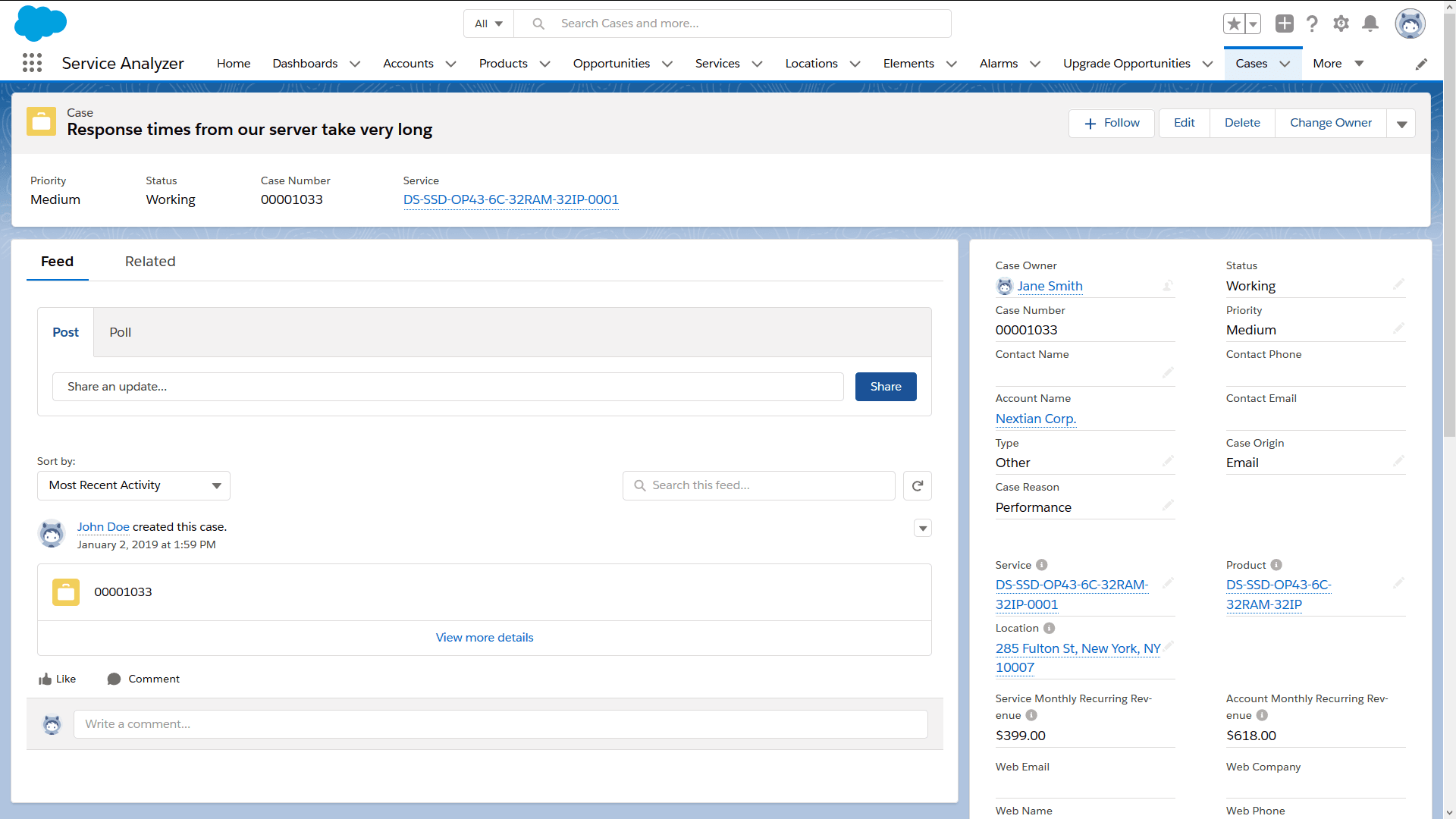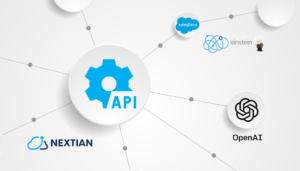Trouble Ticketing for Cloud and Communications in Salesforce – Implementation Options
Trouble ticketing plays a central role in supporting cloud and communication services, including cloud infrastructure (e.g., data centers and colocation), SaaS offerings, and connectivity solutions. Effective ticketing systems enable service providers to track customer issues, assign technicians, manage communications, document resolution efforts, and ensure compliance with service-level agreements (SLAs).
Compared to traditional IT helpdesk tickets, service provider tickets are often more complex due to their specialized nature and scope. Key distinctions include:
- Service Association: Tickets are typically linked to specific services, such as Internet connections, hosted servers, or cloud platforms.
- Root-Cause Dependencies: They may have dependencies on other tickets, requiring root-cause analysis and cross-ticket coordination.
- Automation: Many tickets are auto-generated by network monitoring systems (e.g. service down) or infrastructure status updates (e.g. hardware update), streamlining issue detection.
- Business Purposes: Tickets address a variety of business needs, including outage resolution, maintenance tasks, and service requests.
- Resolution Workflows: Their workflows vary based on multi-dimensional criteria, such as ticket origination, business objectives, and SLA requirements.
Implementing Ticketing within CRM Systems
Integrating ticketing capabilities into CRM systems, such as Salesforce or Microsoft Dynamics, offers significant business advantages:
- Unified Account Database: By consolidating customer accounts into a single database, there is no need to synchronize or maintain separate account records in the ticketing system.
- Customer Support History Access: Account managers can easily access a complete history of customer support interactions, improving client relationship management and service quality.
- Reduced System Integration Needs: Integration with external ticketing systems is no longer necessary, avoiding the complexities of implementation and ongoing maintenance.
These benefits are amplified when the CRM system is also utilized for service inventory and contract management, enabling businesses to track all sold services, their terms, and associated contracts.
Service provider-grade trouble ticketing can be implemented in Salesforce through several approaches, which are detailed below.
Standard Salesforce Cases
Salesforce includes a built-in Case object designed for customer support management.
In the Sales Cloud (Salesforce’s traditional CRM offering without dedicated customer support features), Cases provide basic functionality. However, they can be enhanced significantly through:
- Custom Fields: Adding fields tailored to specific business needs.
- Lightning Components: Implementing dynamic and interactive UI components.
- Action Buttons: Streamlining processes with custom actions.
- Workflows: Automating key support processes.
- Custom APEX Code: Extending functionality for advanced use cases.
Using the CRM Case object can be an effective approach for building either a basic support or ticketing system or a highly-customized solution to meet specific (and usually unique) business requirements.

Salesforce Service Cloud
Service Cloud enhances the standard Case object with a wide range of advanced features, including:
- SLAs and Entitlements: Tools for tracking service-level agreements and customer entitlements.
- Chatter Integration: Facilitates collaboration and communication within support teams.
- Multi-Channel Support: Enables email-to-case and web-to-case functionality, including integration with Salesforce Communities for streamlined customer interactions.
While Service Cloud is a robust and generic customer support solution, customizing it for cloud and communications services ticketing may require additional effort.
Service Cloud is an excellent choice if:
- Its out-of-the-box functionality meets business requirements.
- Its enhanced capabilities provide a stronger foundation for customization and development compared to standard Cases.

Building Custom Ticketing
Salesforce provides robust customization and development capabilities, including:
- Custom Database Objects: Define data structures tailored to specific business needs.
- Page Layouts and Components: Create user-friendly and dynamic interfaces.
- APEX Code: Develop advanced logic and processes to support unique requirements.
These features enable the development of a fully custom ticketing solution. While this approach is often not the most cost-effective option, it can be a viable choice for businesses with:
- Unusual or Highly Complex Support Processes: Scenarios that cannot be addressed by out-of-the-box solutions.
- Extensive Integration Requirements: Systems requiring seamless connections to underlying infrastructure or third-party platforms.
Building a custom solution should be considered when standard or Service Cloud options cannot meet the specific demands of the support process.
Using Third-Party Ticketing
Salesforce AppExchange offers a wide range of third-party ticketing apps as well as connectors to industry-leading ticketing systems.
Nextian Service Management and Ticketing
The Nextian Service Management, Support & Monitoring package for Salesforce is compatible with both Sales Cloud and Service Cloud. Building on top of Nextian’s service inventory capabilities, it introduces the ability to associate cases with specific services, such as Internet access or virtual machines. This functionality enables:
- Case Creation Across Platforms: Cases can be created in the CRM, Customer Portal, and Partner (Reseller) Portal, ensuring seamless support access.
- Comprehensive Reporting: Generate detailed case statistics and timeline reports for accounts, products, service addresses, and individual services, providing actionable insights.
- Triage and Prioritization: Enhance case management by including financial information directly on cases (e.g., monthly customer payments) to prioritize high-value clients effectively.
- Enhanced Visibility: Provide product and account management teams with visibility into cases at both the product and account levels, improving collaboration and decision-making.

Conclusions
Implementing ticketing within a CRM system offers several key advantages:
- Unified Account Database: Eliminates the need to synchronize or maintain separate account records within the ticketing system.
- Comprehensive Support History: Provides account managers with easy access to a full history of customer support interactions.
- Enhanced Team Insights: Offers support teams valuable account information to improve resolution efficiency.
- Simplified Integrations: Reduces the need for additional system integrations, saving time and resources.
Salesforce, as a highly customizable CRM platform, is well-suited for implementing provider-grade trouble ticketing solutions.
Nextian has extensive experience building provider-grade ticketing solutions in Salesforce, whether using Service Cloud or standalone implementations.
Contact us today to find out how we can help you!






